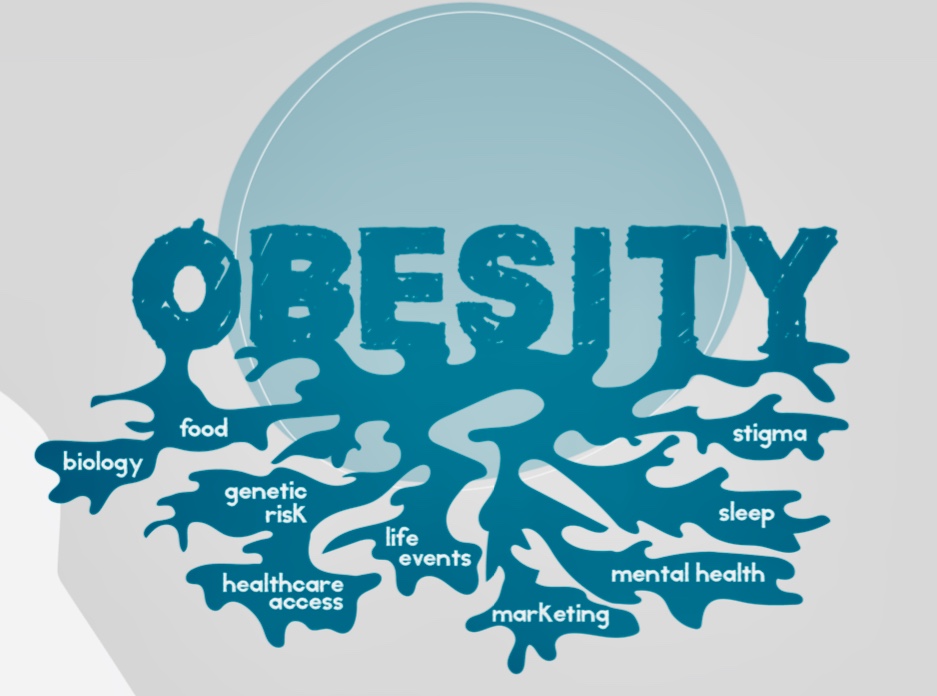By Henrylito D. Tacio
Photos courtesy of World Obesity Federation
Overweight and obesity are not only prevalent in industrialized countries but in developing countries like the Philippines as well.
In fact, overweight and obesity were the top nutrition issues in the eight cities of Metro Manila, according to the Food and Nutrition Research Institute (FNRI) of the Department of Science and Technology (DOST). The prevalence of overweight and obesity in highly urbanized cities is reportedly higher than the national estimates.
Being overweight and obese is no laughing matter anymore. Recent studies showed that three out of 10 Filipinos are reported to be overweight.
“In 10 years, the prevalence of obesity among Filipino adults almost doubled from 20.2% in 1998 to 37.2% in 2018,” reports The Manila Times. “One out of four Filipino children aged 6-10 years old and one out of every 10 Filipino adolescents are overweight/obese as of 2018.”
Overweight and obesity are defined as abnormal or excessive fat accumulation that presents a health risk. A body mass index (BMI) over 25 is considered overweight, and over 30 is obese.
“Obesity rates have nearly tripled since 1975 and have increased almost five times in children and adolescents, affecting people of all ages from all social groups in both developed and developing countries,” deplored the World Health Organization (WHO).

Every March 4th, the international community observes World Obesity Day as a way of addressing the global obesity epidemic. This year’s theme is: Every Body needs Everybody. To spread the message, the organizers launched a number of hashtags: #WorldObesityDay, #WOD2021, and #EveryBodyNeedsEverybody.
“We need to act together, now,” the worldobesityday.org urges. “Obesity is a disease that affects more people than most of us realize, and we need the support of everybody to change this.”
About 800 million people around the world are living with obesity. By 2025, the medical consequences of obesity will cost over $1 trillion by 2025. Childhood obesity is expected to increase by 60% over the next decade, reaching 250 million by 2030.
What is even alarming in these days of the pandemic is the fact that people living with obesity are twice as likely to be hospitalized if tested positive for coronavirus disease 2019 (COVID-19).
A report by the US Centers for Disease Control and Prevention suggests that 48% of people hospitalized with COVID-19 were also affected by obesity. A study in France found that people in critical care with COVID-19 were 1.89 times more likely to have obesity than the general public.
“It is not yet clear why there is a link between COVID-19 and obesity, however, an increased susceptibility to respiratory problems, inflammation, immunological disturbances and altered microbiomes disturbances in people living with obesity may all be contributing factors,” the worldobesity.org explained.
In addition, obesity has a number of non-communicable disease comorbidities such as diabetes, cancer, and heart disease, which have also been shown to increase risk of severe COVID-19 outcomes.

The Geneva-based World Health Organization (WHO) reported that in 2016, an estimated 2.8 million people died as a result of overweight/obesity.
Overweight and obesity are major risk factors for a number of chronic diseases, including cardiovascular diseases such as heart disease and stroke, which are the leading causes of death worldwide. In the Philippines, 276 people die from a heart attack each day, while stroke claims the life of one person every minute.
Being overweight can also lead to diabetes and its associated conditions, including blindness, limb amputations, and the need for dialysis. Based on the 2013 Philippine Health Statistics, diabetes is now the sixth leading cause of death among Filipinos. Over six million Filipinos are diagnosed to have diabetes.
Carrying excess weight can likewise lead to musculoskeletal disorders, including osteoarthritis. Obesity is also associated with some cancers, including endometrial, breast, ovarian, prostate, liver, gallbladder, kidney, and colon.
On the other hand, obesity in childhood is associated with a wide range of serious health complications and an increased risk of premature onset of related illnesses. Studies have found that without intervention, children and adolescents with obesity will likely to continue to be obese into adulthood.
The worldobesityday.org considered obesity a disease, and as such, it must be treated as one. “There are many factors that can put people at higher risk of developing obesity, including biology, genes, mental health, access to healthcare and exposure to ultra-processed, unhealthy foods,” it said. “Obesity is not due to a lack of will power.”
The website, medicinenet.com, identified the nine most common causes of obesity. The first top two causes are overeating and physical inactivity.
“Overeating leads to weight gain, especially if the diet is high in fat,” wrote Dr. Jerry R. Balentine, author of the feature. “Foods high in fat or sugar (for example, fast food, fried food, and sweets) have high energy density (foods that have a lot of calories in a small amount of food).”

Compared with those who exercise regularly, “sedentary people burn fewer calories,” Dr. Balentine stated and cited the US National Health and Nutrition Examination Survey, which showed strong correlations between physical inactivity and weight gain in both sexes.
A diet high in simple carbohydrates and frequency of eating also play important roles in obesity. “Carbohydrates increase blood glucose levels, which in turn stimulate insulin release by the pancreas and insulin promotes the growth of fat tissue and can cause weight gain,” Dr. Balentine explained.
Psychological factors and social issues should not be disregarded when it comes to obesity. “Many people eat excessively in response to emotions such as boredom, sadness, stress or anger,” Dr. Balentine said. “There is a link between social issues and obesity. Lack of money to purchase healthy foods or lack of safe places to walk or exercise can increase the risk of obesity.”
Genetics can also be a culprit. “A person is more likely to develop obesity if one or both parents are obese,” Dr. Balentine said. “Genetics also affect hormones involved in fat regulation.”
Diseases and the medications a person takes can also cause a person to be obese. Diseases such as hypothyroidism, insulin resistance, and Cushing’s syndrome are also contributors to obesity.
Medications associated with weight gain include certain antidepressants, anticonvulsants, some diabetes medications, and certain hormones. Some high blood pressure medications and antihistamines also cause weight gain.
“Many of the causes of overweight and obesity are preventable and reversible,” the WHO says. “However, no country has yet to reverse the growth of this epidemic.”
The website worldobesityday.org reminded that those who think “eat less, move more” can fix obesity need to think twice. “Addressing obesity is not just a matter of diet and exercise,” it explained. “When we tell people to ‘eat less, move more,’ we ignore other important factors. Although physical exercise plays an important part in overall health, it is not a significant factor in managing obesity.”
In many countries, it has been observed that people living with obesity are almost always blamed for their disease. “Weight stigma suggests that obesity is due to individual failure, and puts responsibility on people living with obesity to ‘fix,’” the website said. “It can damage mental and physical well-being and prevent people from seeking necessary medical care.
“While stigma may be different across the world, one thing is clear: experiencing discrimination due to weight does not help people to adopt healthier lifestyles,” the website contended. “In fact, it can make it harder.”

